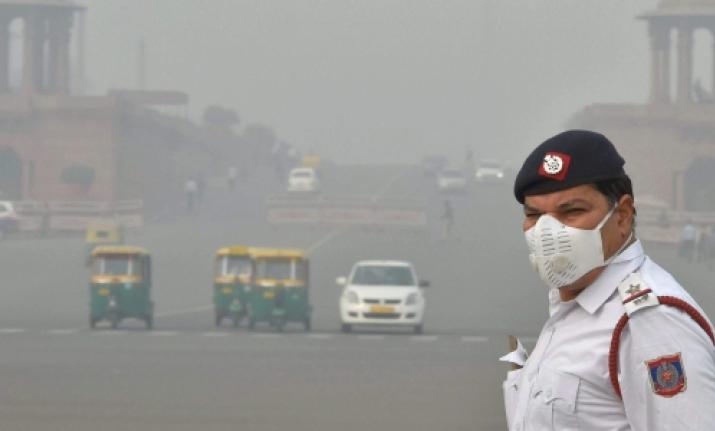
Switch off vehicle engines at signals, says Kejriwal as Delhi pollution soars
On a day when the air quality turned ‘very poor’, Delhi chief minister Arvind Kejriwal launched a campaign urging motorists to help fight air pollution that peaks around this time of the year mainly due to the burning of stubble by farmers in the neighbouring states.

On a day when the air quality turned ‘very poor’, Delhi Chief Minister Arvind Kejriwal launched a campaign urging motorists to help fight pollution that peaks around this time of the year, mainly due to the burning of stubble by farmers in the neighbouring states.
Kejriwal said under the campaign, the government wants motorists to switch off the engines at red lights. “While we cannot do much about stubble burning by farmers in the neighbouring states, we should take all the measures that we can to fight pollution,” he said.
Related News: Delhi govt approves tree transplantation, smog tower in Connaught Place
“We are launching a campaign ‘Red light on, gaadi off’ to tackle air pollution,” Kejriwal said at a press conference on Thursday. “About one crore vehicles are registered in Delhi. Even if 10 lakh vehicles turn off the engines at traffic signals, then the amount of PM10 in a year will reduce by 1.5 tonnes,” he said. “Switching the engine off will not only help reduce pollution, it will also help save more fuel.”
The Delhi government has announced various other strict measures under its Graded Response Action Plan (GRAP) to tackle pollution. The GRAP came into effect on Thursday, a day when the air quality in Delhi became ‘very poor.’ The air quality index (AQI) in Delhi touched 315 around 11 am, indicating a worsening of the pollution. On Wednesday, the 24-hour average AQI was 276, a measure corresponding to ‘poor’ air. The pollution level was at the highest in places like ITO, Vivek Vihar, and Shadipur and in neighbouring Faridabad, Ghaziabad, Greater Noida and Noida.
Related News: Stubble burning: Bio-decomposer spraying from Oct 11 in Delhi, says Kejriwal
The GRAP involves increasing the use of public transport, especially buses and Metro, prohibiting the use of diesel generators and hiking parking fee to discourage use of private vehicles. When the condition becomes ‘severe’, many industries such as brick kilns and stone crushers are closed and power generation through natural gas is maximised. In an ‘emergency’ situation, Delhi will stop the entry of trucks, ban construction activities and enforce the odd-even scheme for vehicles.

